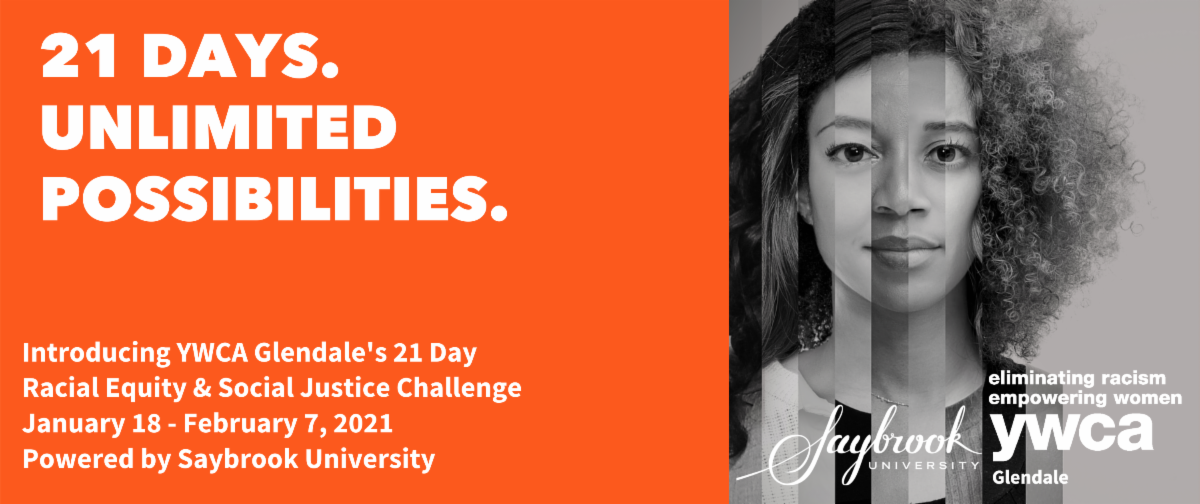21 Day Racial Equity & Social Justice Challenge
YWCA Glendale‘s Racial Equity & Social Justice Challenge starts January 18!
What is the 21 Day Challenge?
The 21-Day Challenge was created to help people better understand how racial inequity and social injustice impacts our community. The challenge is designed to provide participants daily tasks via email that include activities such as reading an article, listening to a podcast, and reflecting on personal experiences. By addressing issues of race, power, privilege and leadership we can connect with others to identify ways to dismantle racism and other forms of discrimination.
What is Racial Equity?
It is both an outcome and a process. As a process, we apply racial equity to policies, systems, structures and institutions by analyzing data so we can identify, uncover and remove barriers that produce disparate (unfavorable) outcomes based on race. As an outcome, racial equity is the condition that would be achieved if one’s racial identity no longer predicted, in a statistical sense, how one fares in society.
Why the Challenge?
It is said that it takes 21 days to form a habit. By taking small actions and participating in a conversation about racism and social justice, we can create momentum and unity in order to build new and positive habits to change our communities and ourselves. YWCA Glendale will be launching the 21-Day Anti-Racist Challenge on January 18, 2021 – Martin Luther King Day. Education is an essential part of organizing for change. Therefore, students from Saybrook University (a graduate university based in Pasadena that focuses on educating humanistic leaders who transform their fields and communities), will support the development of this Challenge by measuring the results of the Challenge’s pre and post survey data to assess the Challenge’s impact.
Why Should I Engage My Company or Organization?
The 21-Day Challenge provides a framework for meaningful action through daily emails allowing leadership to offer employees the power and platform to take action for racial justice. The psychological impact of public events regarding racial violence and racist threats carries over into the workplace. How organizations respond can either help employees feel psychologically safe or contribute to feelings of isolation, fear and sadness. Leaders seeking to create an inclusive environment for employees can help to address these topics by being a part of the challenge.

